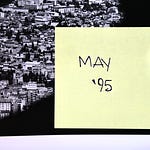August ‘94.
The Army of the Republic of Bosnia and Herzegovina launched a massive attack on the Autonomous Region of Western Bosnia, occupying almost the entire secessionist enclave around the stronghold of Velika Kladuša [you can listen to the latest episode of BarBalkans - Podcast here].
While the Bosniak and Bosnian-Croat armed forces continue to earn military successes, the Serb front is in crisis due to political disagreements between the President of Serbia, Slobodan Milošević, and the President of Republika Srpska, Radovan Karadžić.
The situation becomes particularly tense with the reaction to the Contact Group Plan for Peace in Bosnia and Herzegovina, which is approved by Milošević but rejected by Karadžić.
The Serb nationalism fragments into its myriad facets, proving that the calls for unity of “Serb patriots” are merely a diversion to push personal or partisan interests.
The fall of Velika Kladuša
Following the deceptive move against the founder of the Autonomous Region of Western Bosnia, Fikret Abdić, the offensive by the Bosnian Army continues with the capture of the stronghold of Velika Kladuša.
The government in Sarajevo grants amnesty to members of the People’s Defense of Western Bosnia and all those accused of war crimes.
However, the fall of Velika Kladuša on August 21 forces around 35 thousand people - both civilians and military personnel - to flee to the Republic of Serbian Krajina. More than half of them try to reach Croatia, but get stuck at the informal border in desperate conditions.
The offensive of the Army of the Republic of Bosnia and Herzegovina irritates the commander of the United Nations Protection Force (UNPROFOR) in Bosnia and Herzegovina, Michael Rose.
The British lieutenant general accuses the Bosniaks of being «warmongers» and suspects them of Islamic fundamentalism. For the first time since April 1992, he threatens to call for NATO air intervention against Bosniak positions, if they continue to obstruct the peace mission.

An already written referendum
At the same time, it is the verbal and diplomatic clash between Belgrade and Pale that sets the Bosnian summer on fire.
On August 3, the Bosnian Serb Parliament ingeniously rejects the Contact Group Plan, calling a popular referendum on peace in Bosnia and Herzegovina for August 27-28.
Serbian President Milošević’ reaction is harsh. As already done in May 1993, the Federal Republic of Yugoslavia closes the borders with Republika Srpska (with the exception of food and medicine), blocks the telephone lines and cuts diplomatic relations.
In Serbia, society is polarised between a left-wing nationalism that supports Milošević - portrayed as the heir of the Yugoslav partisans - and a right-wing nationalism that defends Karadžić and considers him a descendant of the Chetniks.
What emerges is not a clash between the two factions but, paradoxically, mutual accusations of war crimes. For the first time, this includes the horrors of the war in Bosnia and the siege of Sarajevo by the regime’s newspapers.

On the other hand, the Bosnian Serb establishment takes countermeasures, in preparation for the referendum on the Peace Plan scheduled for the end of the month.
On August 7, a war economy and general mobilization are proclaimed in the Republika Srpska, although President Karadžić’ real gamble is to take possession of the idea of Greater Serbia. The strategy is based on summoning all Serb “compatriots”, and finds great success in the Republic of Serbian Krajina led by Milan Martić.
The two Serb Republics proclaimed their union in October 1992, but it was never implemented. However, Martić now needs support to face the fall of the Autonomous Region of Western Bosnia (the Bosniak ally in the region) and the Bosnian Army counteroffensive, which is spreading partially into the Republic of Serbian Krajina.
Meanwhile, the referendum results in Republika Srpska are announced on August 28. The turnout reaches 91%, but the result is still an obvious rejection of the Contact Group Plan: 96.65% of Bosnian Serb voters say “no”.
Once again, another plan of the international community to end the war in Bosnia and Herzegovina fails, proving ineffective on the ground.

The support of readers who every day gives strength to this project - reading and sharing our articles - is essential to realize all that you have read and listened to, and even more.
If you know someone who can be interested in The Yugoslav Wars podcast, why not give them a gift subscription?
Behind every original product comes an investment of time, energy and dedication. With your support BarBalkans will be able to elaborate new ideas, interviews and collaborations.
Here is the archive of The Yugoslav Wars:
Here you can find a summary of the past years:














Share this post